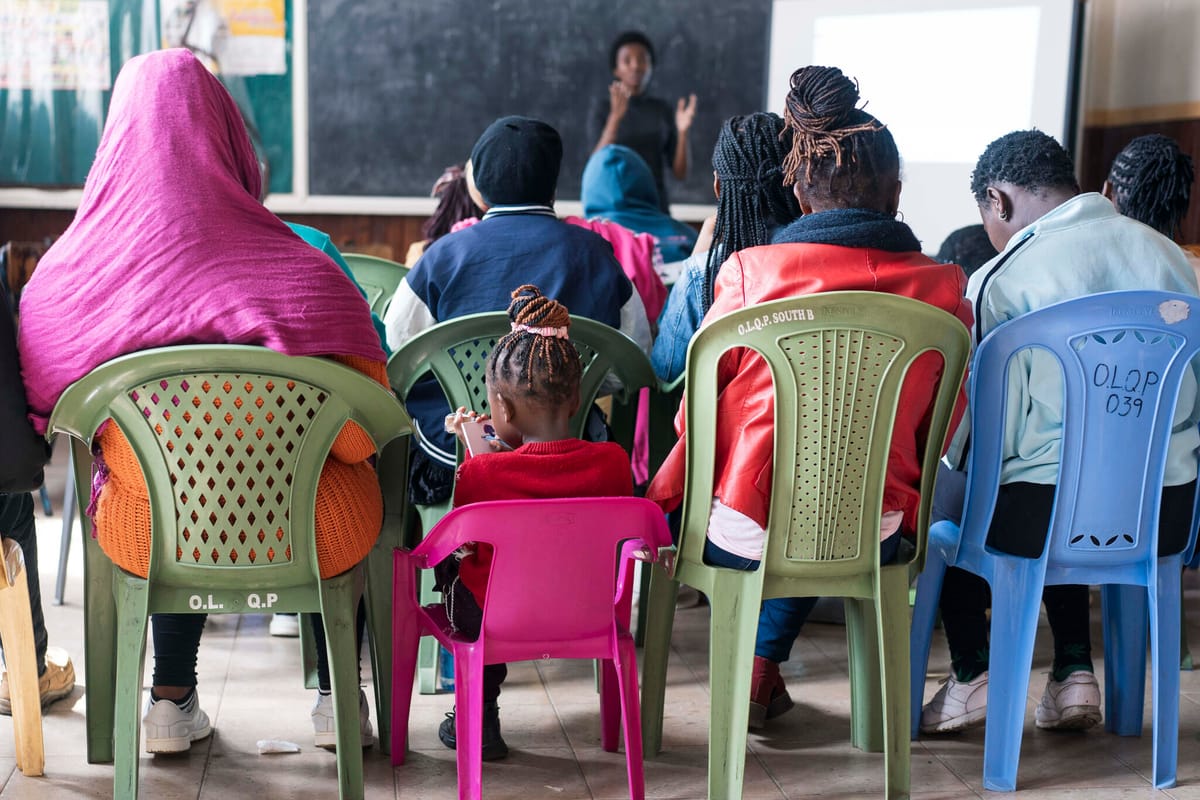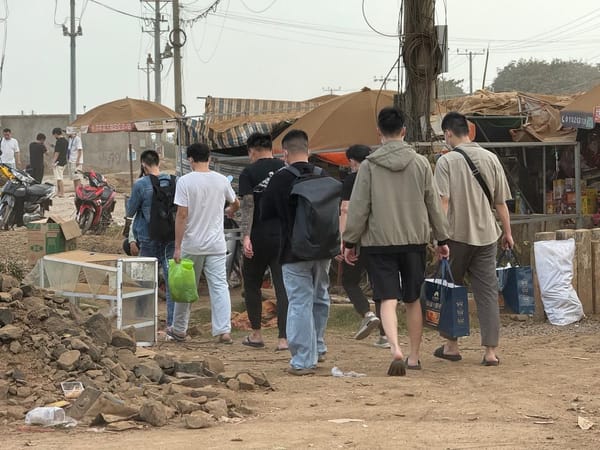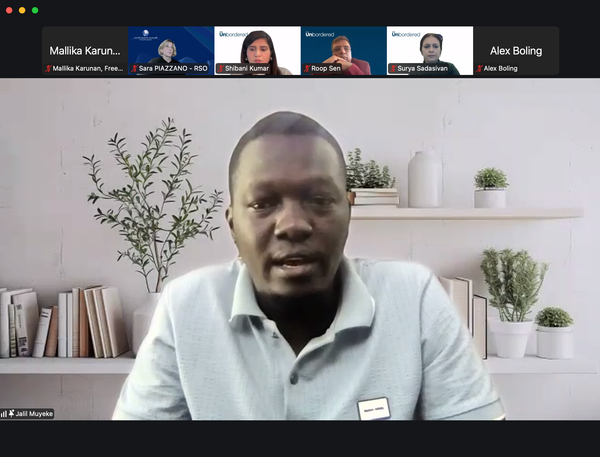Cross-regional practitioners come together to address an established trafficking route
EHAAT members and Southeast Asia experts discuss the trafficking of East Africans into cyber-scam centers, IJM examines potential links between scam compounds and child sextortion, and Uzbek Forum warns that cotton sector reforms in Uzbekistan risk being undermined by coercive dependency.

Freedom Collaborative convened the first in a series of capacity-building learning calls on trafficking for forced criminality last week, connecting members of our Trafficking for Forced Criminality Response Working Group and the East and Horn of Africa Anti-Trafficking (EHAAT) Network to address the increasing numbers of East Africans trafficked into Southeast Asian cyber-scam centers.
The inaugural session explored findings from our upcoming report on this emerging trend, combined with insights from the 2025 Regional Routes Mapping report, a joint project of EHAAT and Freedom Collaborative that analyzes unsafe migration routes and trafficking dynamics in the East Africa region. By bringing together practitioners and experts from the area with those from Southeast Asia, the initiative seeks to strengthen channels of cooperation, facilitate timely information sharing, and establish a framework for more effective cross-regional victim assistance and survivor-centered interventions.
The conversation explored socioeconomic and migratory factors that heighten East Africans’ susceptibility to trafficking, including deceptive recruitment tactics, unsafe travel routes, and the push-and-pull dynamics drawing individuals towards high-risk destinations in Cambodia, Thailand, Laos, Myanmar, Vietnam, and the Philippines. Speakers shed light on the journey and treatment of trafficked victims – from recruitment and travel, to arrival and processing within the centers – highlighting exploitative living and working conditions, coercion, and the multiple layers of abuse and control victims are subjected to once inside.
For instance, participants discussed research findings showing that victims – most but not all of whom are males between 20 and 32 years old – are commonly recruited through personal or family connections, while fraudulent job advertisements on Facebook and Telegram are also common. People working in informal sectors affected by economic downturns, such as tourism, agriculture, and transportation, are lured by the promise of economic opportunities and legitimate-sounding jobs in office administration, HR, or hospitality, and many are told they are going to work in Thailand, a country presented as safe and economically attractive.
In addition to economic factors, vulnerabilities including family instability, peer pressure, and lack of community support increase trafficking risks, as does the high proportion of children and young adults in East African countries with no online safety training.
Speakers also highlighted challenges faced by frontline responders, including difficulties in victim identification and limitations in providing survivors with meaningful repatriation, reintegration, and aftercare services. Screening large numbers of people at once makes diligent individual screening difficult for law enforcement, and screening spaces often lack privacy and a trauma-informed approach, with survivors sometimes interviewed alongside perpetrators.
A lack of repatriation funding from East African governments also means that East Africans are the most disproportionately affected by repatriation delays compared with other nationalities, while some survivors choose to plead guilty to immigration offenses so they can return home quickly, or even voluntarily return to scam centers because they feel they have nothing to go home to.
Recommendations were made for prevention, intervention and aftercare services, including community-based training on safe employment practices and online safety, collaborative advocacy with private sector tech companies such as Meta and TikTok to regulate fraudulent job postings, and accessible support channels, such as helplines, police contacts and NGOs for Africans traveling abroad for work. Other suggestions included pre-departure screening and awareness campaigns at airports, and training for immigration and airport security personnel to help them identify and intercept potential trafficking cases. Furthermore, justice should be made accessible for survivors to support their long-term recovery and empowerment, and destination and origin countries should coordinate to connect survivors with services before they are repatriated.
These learning exchanges will continue monthly through the remainder of the year, offering regular opportunities for dialogue, skill-sharing, and partnership-building between the EHAAT Network and our working group, with the ultimate goal of reducing protection gaps, improving victim outcomes, and building a more coordinated response.
Here’s a roundup of other noteworthy news and initiatives:
A new report by the International Justice Mission (IJM), funded by Safe Online and the Thomson Reuters Social Impact Institute, examines possible links between forced scamming operations in Southeast Asia and financially motivated child sextortion. The study found overlaps in infrastructure and timing, suggesting areas that warrant further investigation by governments, law enforcement, and tech companies.
The International Labour Organization (ILO) has welcomed Malaysia’s adoption of its first National Action Plan on Business and Human Rights (2025–2030), which includes a dedicated labour pillar. The plan commits to eliminating forced labour by 2030, promoting fair recruitment, and strengthening labour rights such as freedom of association, collective bargaining, and non-discrimination, with the ILO pledging support for its effective implementation.
Eight years after over 700,000 Rohingya fled to Bangladesh, the NGO Platform in Cox’s Bazar warns that more than one million remain in limbo without legal status, education, or the right to work, and are increasingly at risk as humanitarian funding collapses. The Platform calls for urgent, predictable financing, strengthened protection against trafficking and gender-based violence, climate adaptation, and durable solutions, including third-country resettlement, while stressing that safe return to Myanmar is impossible without full citizenship and guaranteed rights.
South Africa’s Western Cape High Court will soon hear a landmark case challenging the criminalization of sex work, with major implications for safety, dignity, and human rights. The case addresses the persistent conflation of sex work and trafficking, and a ruling in favor of decriminalization could strengthen protections for survivors while shaping global policy debates.
The Uzbek Forum for Human Rights highlights that Uzbekistan’s cotton sector, once defined by systemic forced labor, is now marked by forced dependency on powerful private clusters that delay payments and prevent farmer independence. Despite promises of reform, authorities obstruct cooperative initiatives, showing how control has shifted form rather than ended and putting the country’s labor rights progress at risk of reversal.
The University of Oxford’s Policy and Evidence Centre on Modern Slavery and Human Rights is currently hiring a Research Programmes Lead and a Policy Impact Lead, with applications due by 19 September 2025.




